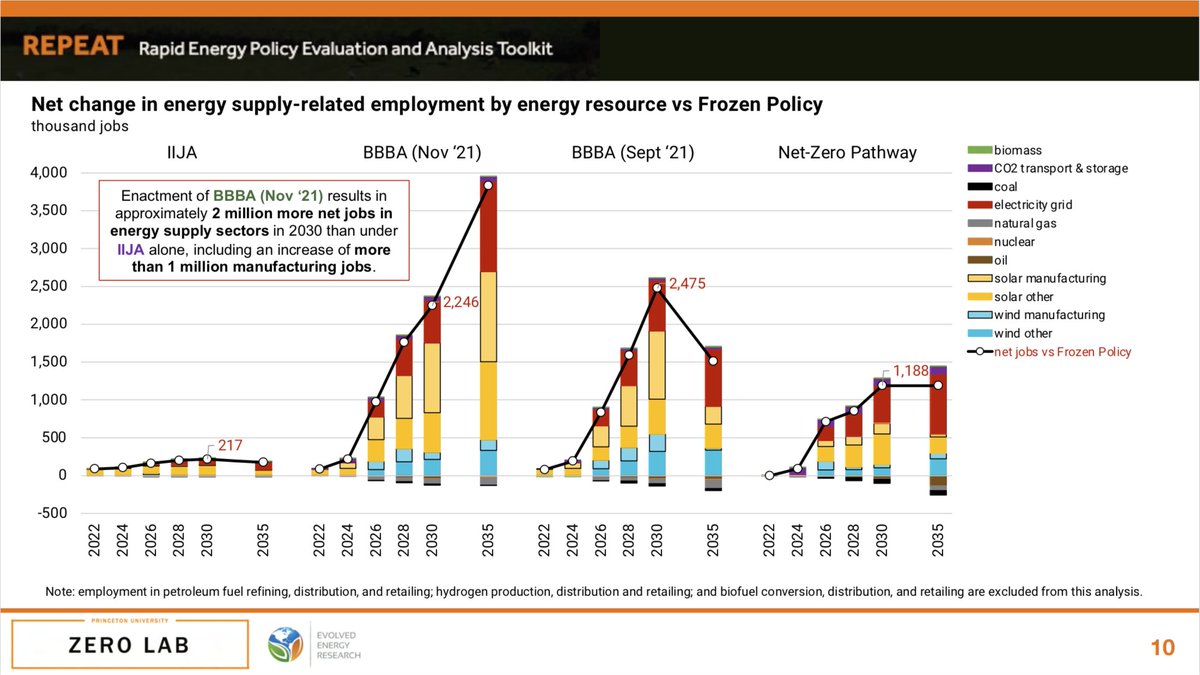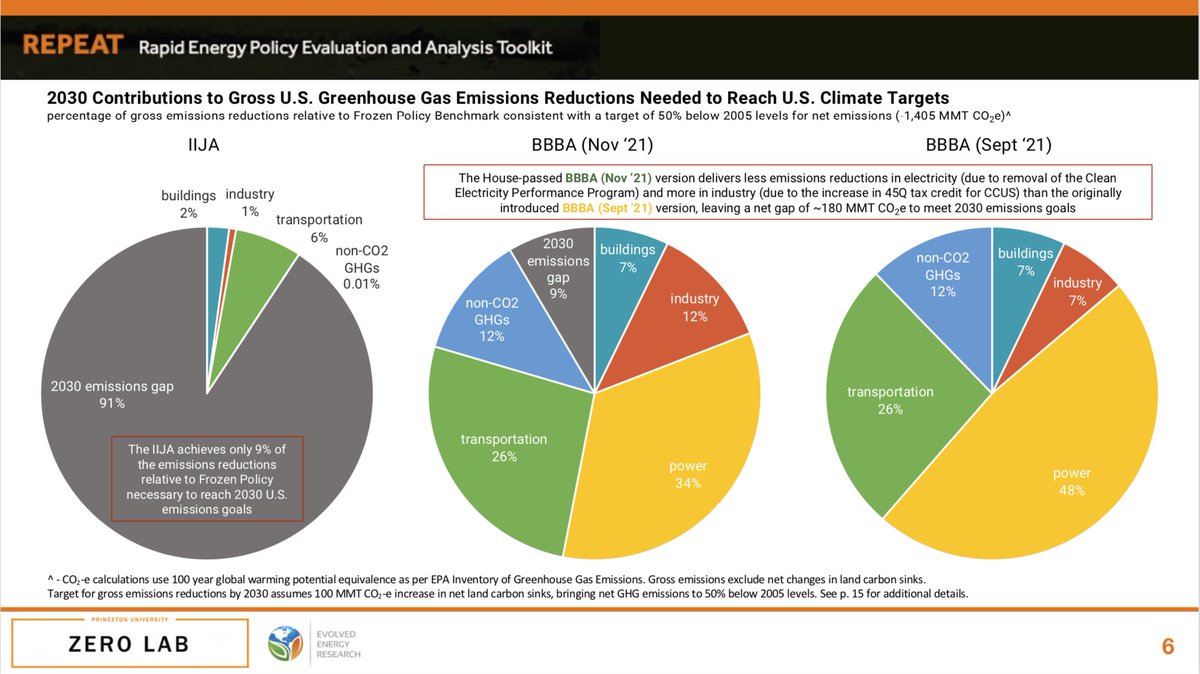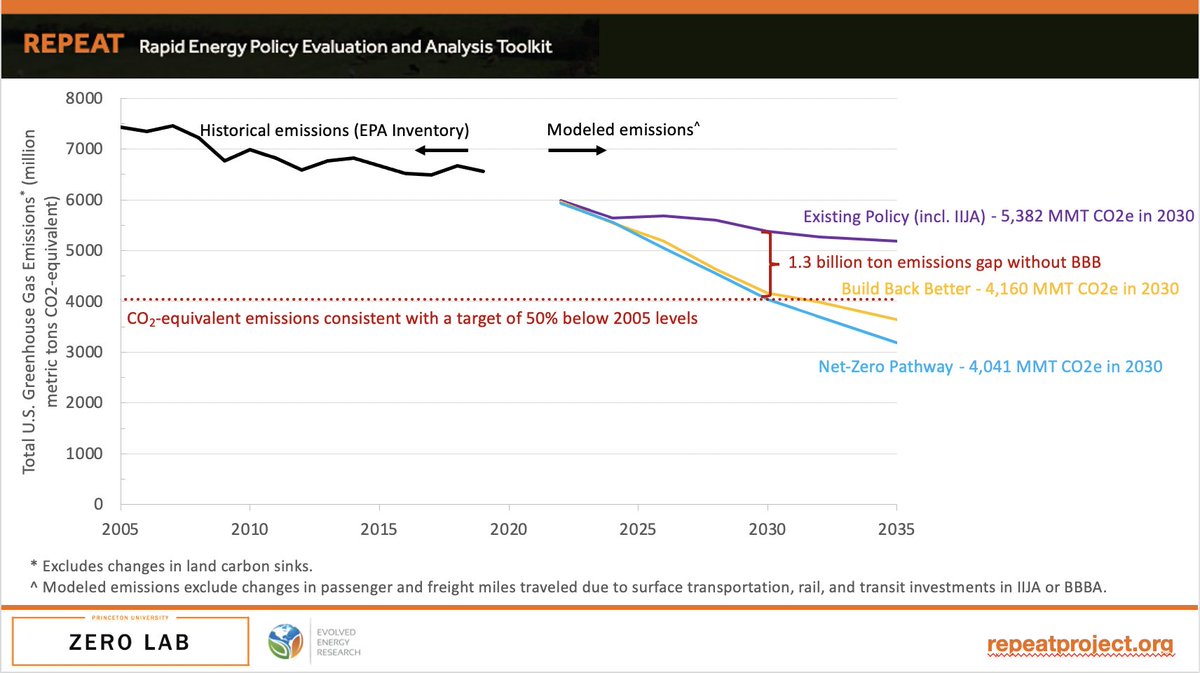
As examples of what you can do with the interactive data portal released today repeatproject.org...
1. Here's a comparison of how many jobs are created under Build Back Better Act vs the Infrastructure Bill (IIJA) repeatproject.org/policies?compa…
1. Here's a comparison of how many jobs are created under Build Back Better Act vs the Infrastructure Bill (IIJA) repeatproject.org/policies?compa…
https://twitter.com/JesseJenkins/status/1498368598439383042
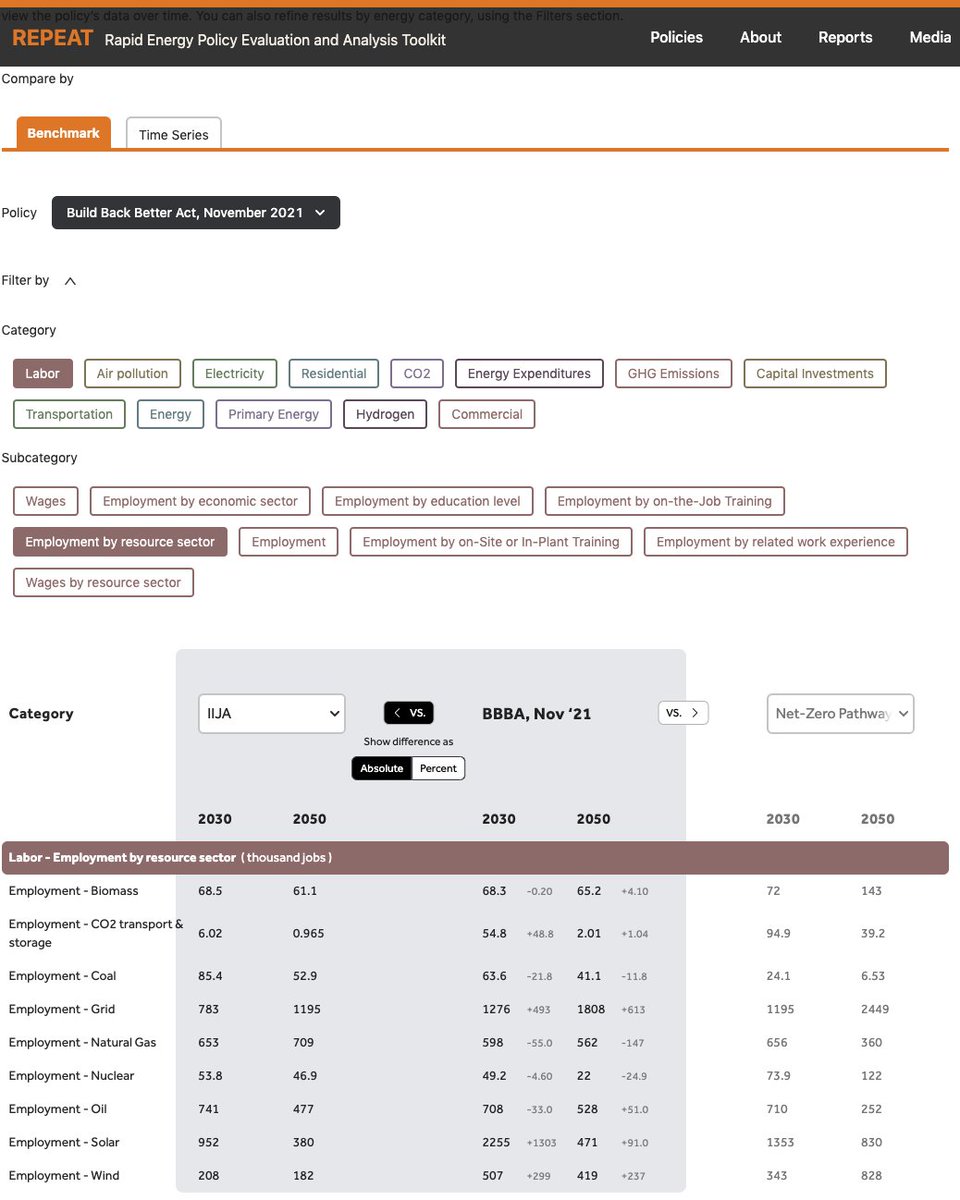
You can freely toggle which policy or benchmark scenarios to compare. You can automatically see differences in absolute units or percentage terms. And you can filter on a variety of category and subcategory types to access (and share with 'sticky' URL) the data you want.
You can also download all data as .csv and toggle between comparison mode and time series mode for each policy. For example, here's GHG emissions for BBBA vs IIJA (repeatproject.org/policies?compa…) and a Net-Zero Pathway benchmark, and in time series mode (repeatproject.org/policies?compa…). 

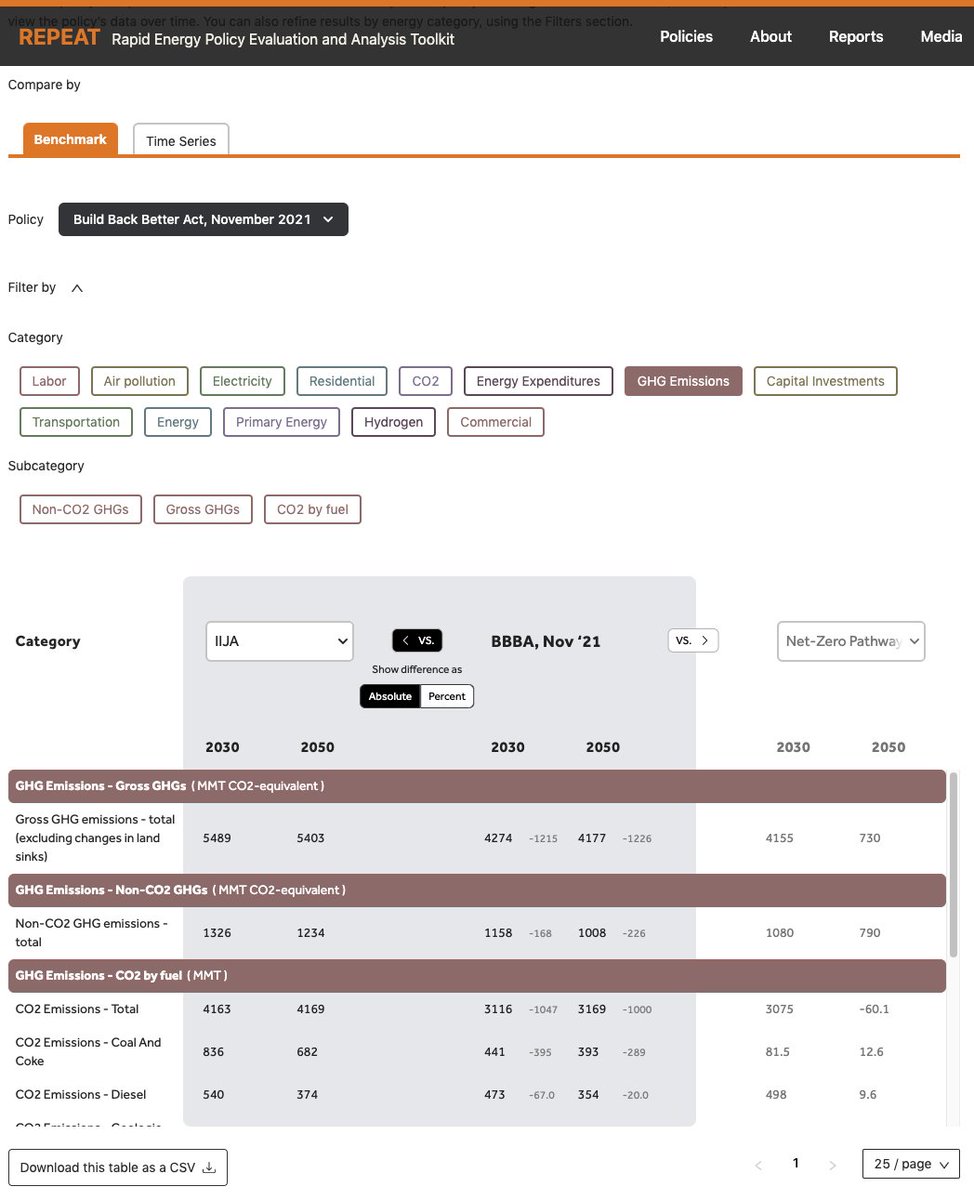
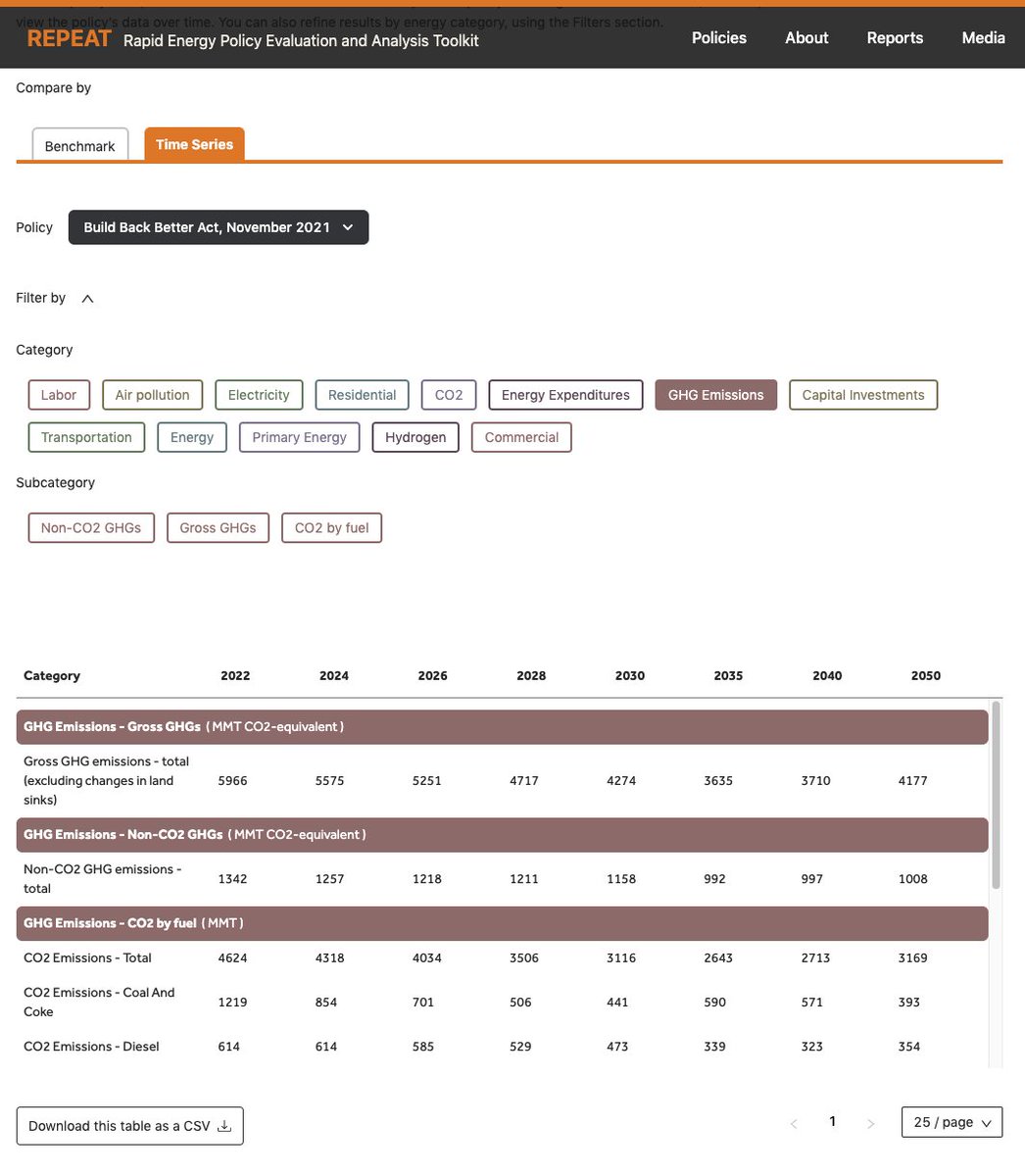
There's LOTS of useful data here, all transparently available for download and reuse. (Just realized I forgot to add the Creative Commons mark, but all data is free of use).
• • •
Missing some Tweet in this thread? You can try to
force a refresh





